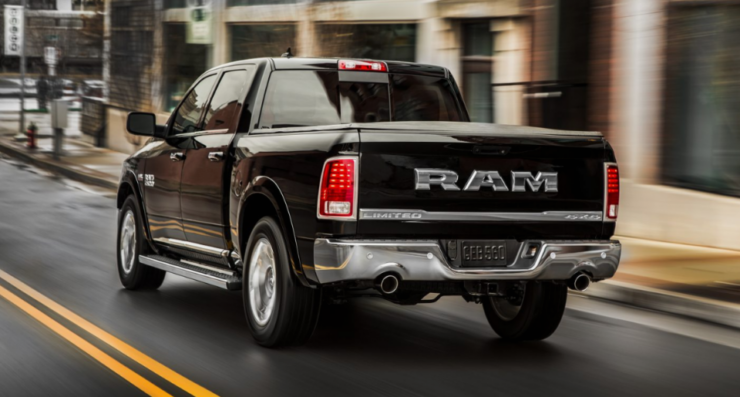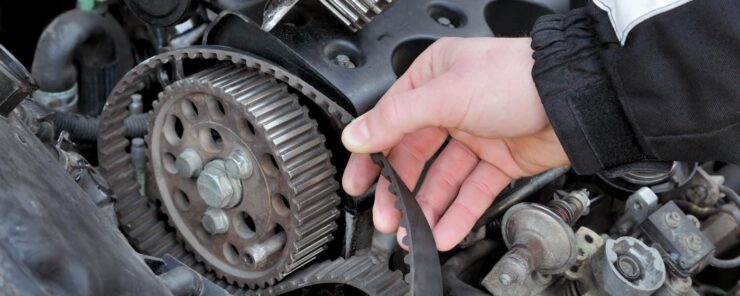The owner of Dodge RAM would know how frustrating it is when your vehicle loses power or hesitates to accelerate appropriately in the middle of the highway.
The engine is an integral part of every vehicle and needs extra attention compared to the other parts of the vehicle. If your Dodge RAM has an acceleration issue, it is the cause of serious concern.
Several factors can cause acceleration issues. It is essential to see the engine revival when you push the gas. If you see the engine light, then get a code and check through the computer system.
The code already available in the system will help you out in narrowing down your vehicle’s problem. In this review, I will discuss the common Dodge RAM acceleration problems.
Common Dodge Ram Acceleration Problems

RPMs Goes Up
If your Dodge Ram shows acceleration problems, there is undoubtedly a transmission issue, but the RPM goes up. The engine generating enough power is not reaching the rear wheels. Below is a detailed description of a possible cause related to the Ram acceleration when RPMs go up.
Transmission Fluid
When your engine fails to accelerate or cannot generate enough power that reaches the wheels, immediately check the transmission fluid. When your Ram’s transmission fluid is lower than usual, the power will reach the torque converter, but it will not be processed further. Hence you will see the RPM’s going up, but the car is unable to accelerate.
Poor Torque Converter
The other cause might be a bad torque converter. The ability to convert the engine’s mechanical power into hydraulic power is not appropriate, which is why the power is not transmitted to the rear wheels. So, when your Dodge Ram has an acceleration issue, look for the torque converter.
Broken Axle Shaft
The most common cause is a broken axle/driveshaft. If your Doge Ram’s axle shaft is broken, the vehicle’s wheels will not receive proper transmission to move. With the broken or damaged axle, your Dodge Ram will be unable to move, and you will not feel even a slight jerk while putting the vehicle into the gear.
Clutch
If your Dodge Ram has a manual transmission, a lousy clutch will also keep your Dodge Ram from accelerating. A properly working clutch will connect the engine with the transmission.
If anything goes wrong with a clutch, the flywheel engine will not connect with the transmission through an input shaft.
According to my experience, Dodge Ram will lose grip on the flywheel when there is an issue in the clutch. While on a highway or using high accelerating power, the issue worsens and cannot handle efficient torque.
RPM’s Stays Put

Clogged Catalytic Converter
The catalytic converter is an integral part of a vehicle’s exhaust system. Its job is to convert harmful gases into less harmful ones. When this vehicle component is too clogged up, it will not function and accelerate properly.
At first, the car drives at a good speed will stop your vehicle t with the passage of tile. It also starts to smell like rotten eggs. So, check for the catalytic converter when you feel the car is not accelerating when the RPMs stay put.
Poor Fuel Filter
If your Dodge Ram is not accelerating correctly, then a bad fuel filter can be a cause. The fuel filter job is to filter enough fuel into the system that can operate the engine. If the engine is not getting enough fuel, it will not accelerate properly. You might not feel it first as it will work fine, but at some point, the pressure becomes low, and the engine bogs down.
Timing Belt

For syncing the upper valve with a crankshaft, an appropriate timing belt is essential. If the timing belt is working correctly, you may experience noise, decreased performance, and fuel efficiency.
If the timing chain is broken, your vehicle will not accelerate, so if you notice any changes in the noise and performance of Dodge Ram, change the timing belt.
Vacuum Leakage
When you drive a Dodge Ram, the engine creates a particular space known as a vacuum. If the engine creates a huge space, the air will not flow properly and is detected by the MAF sensor.
The MAF sensor will read the problem and can stop the vehicle from accelerating. Furthermore, the MAF sensor will also throw you an error code every time you accelerate a vehicle.
Faulty Spark Plugs
The function of a spark plug is to provide the spark that generates enough fuel and power for the engine. If the spark plugs are not working efficiently, the engine will not get enough fuel. As a result, your vehicle will be unable to move. Regular cleaning is necessary for the efficient working of spark plugs.
FAQs
Why is my Dodge Ram not accelerating?
There are several reasons for acceleration problems in Dodge Ram. The most common issue is the transmission problem. If the car engine fails to accelerate or is not adequately reached the rear wheels, check for the transmission fluid. If the fluid is lowered than the average level, your Dodge Ram will fail to accelerate.
Why does the Doge Ram transmission fail?
The transmission of Dodge Ram fails due to the lousy torque converter. The function of the torque converter is to convert the engine’s mechanical power to hydraulic power, which increases transmission to change or shift the gear. If the torque converter is faulty, your vehicle will start to slip at high speed or fail to accelerate.
What are the common Dodge Ram acceleration problems?
The common Dodge Ram acceleration problems include a low transmission fluid level, lousy torque converter, broken axle shaft, clogged catalytic converter, timing belt problem, and faulty spark plugs. These problems can be solved quickly by early detection.
Conclusion
Dodge Ram is a widely used truck, loved by many people. But over time, you may notice acceleration problems in these vehicles, which can be solved by early diagnosis. These issues can be frustrating at times, but you can solve them once you know the exact cause. It was a detailed review of the common Dodge Ram acceleration problems and their solutions.
